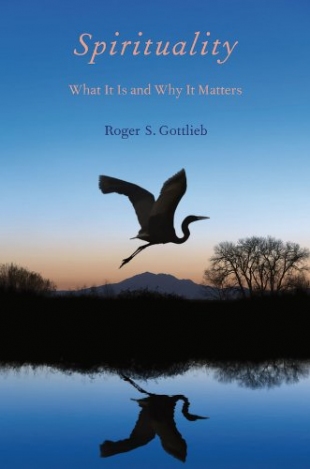"Efforts for justice, care, and reason in social life are difficult, partial, frequently defeated, and often reversed. It was a great triumph to end Soviet communism, but that liberation has been replaced by a kind of Mafia mode of production and monumental government corruption. American women have much more equality since the 1970s, along with more date rape and eating disorders. The environmental movement has won impressive victories, but greenhouse gas emissions continue to rise, as does the sheer quantity of toxic waste.
"A spiritual approach to politics can help us deal with the grief and despair to which these disappointments give rise. Although spiritual social activists, like every other kind, certainly want to win — pass the better law, overthrow the repressive regime, end discrimination — they also believe what they do has value even if they do not succeed. In standing for the moral truth as they see it, they have faith that they are embodying the same force of life and love that has brought them, and everything else, into existence. This sustaining force may be called God or the Tao, Nature or the Great Mystery or the Goddess.
"This faith offers no certainty of ease or happiness — that much is far too clear. God is not like the hero who saves the day at the end of the action movie. But spiritual social activism is not about ease or happiness, though it certainly does strive to lessen unjust pain. Rather, it is about a vital affirmation of existence — that the painful combination of good and evil, justice and oppression, miraculous and horrific is worth loving and fighting for. Even if a particular campaign or battle is lost, even if the entire future is bleak, we will not surrender to the forces of cruelty and insanity. By some mysterious cosmic calculus, it matters what we do. If we believe that, we will have God even in the midst of evil. And we will find God not because of what God does for us, but because of what we try to do for God. In the end, that is all we can be sure of.
"As Dorothy Day, a Catholic social activist who combined her earlier communist critique of social inequality, war, and waste with a deeply spiritual model of human relationships, wrote:
" 'We would like to . . . change the world — make it a little simpler for people to feed, clothe, and shelter themselves as God intended them to do . . . by fighting for better conditions, by crying out unceasingly for the rights of the workers, of the poor, of the destitute . . . we can work for the oasis, the little cell of joy and peace in a harried world.' "
